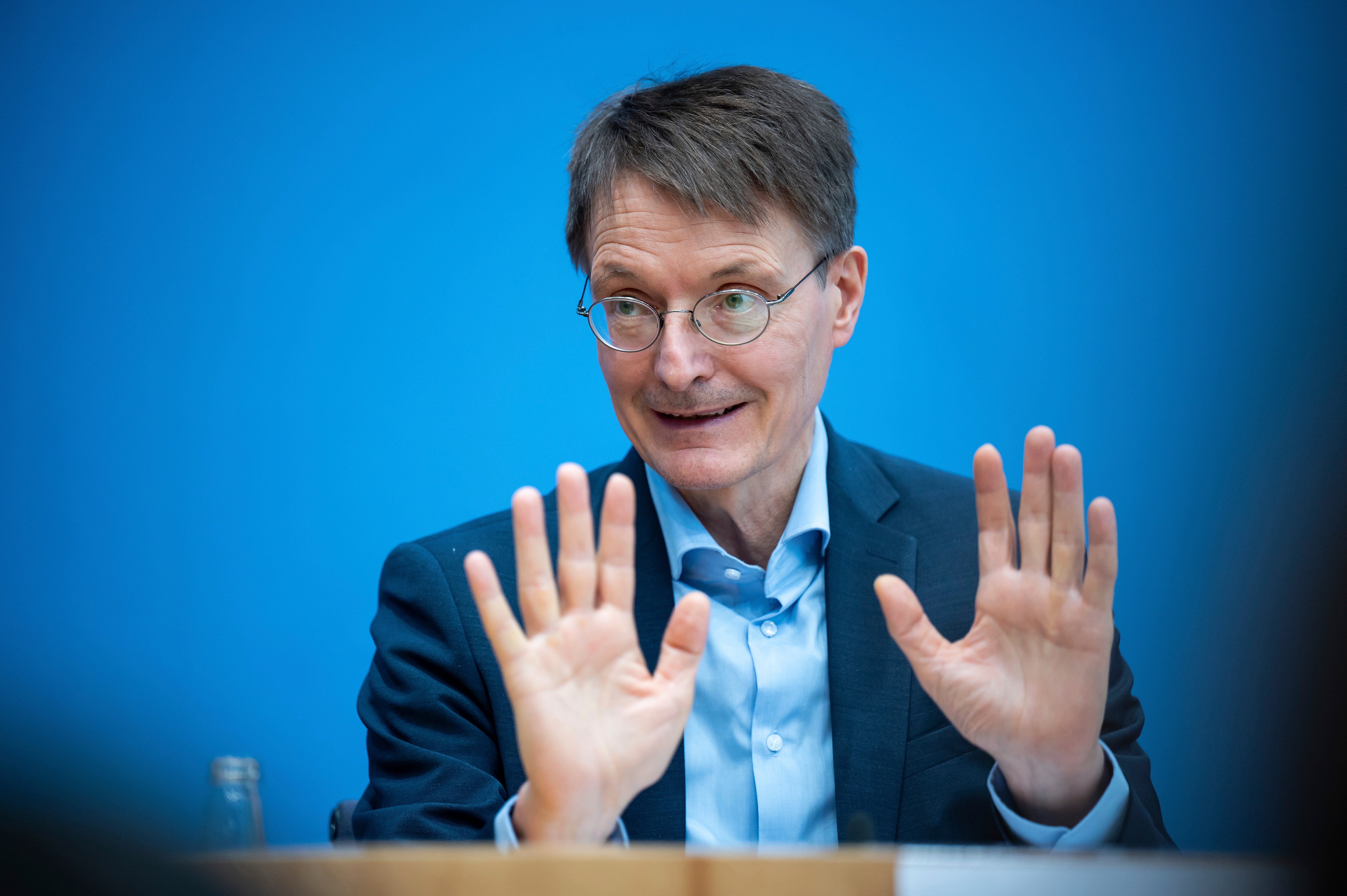Germany getting more vaccines for 'offensive' booster drive
Germany is scrambling to procure more vaccines to fuel what the new health minister calls a “very offensive” and fast booster strategy that would leave the country better prepared for the onslaught of the new omicron variant

Your support helps us to tell the story
From reproductive rights to climate change to Big Tech, The Independent is on the ground when the story is developing. Whether it's investigating the financials of Elon Musk's pro-Trump PAC or producing our latest documentary, 'The A Word', which shines a light on the American women fighting for reproductive rights, we know how important it is to parse out the facts from the messaging.
At such a critical moment in US history, we need reporters on the ground. Your donation allows us to keep sending journalists to speak to both sides of the story.
The Independent is trusted by Americans across the entire political spectrum. And unlike many other quality news outlets, we choose not to lock Americans out of our reporting and analysis with paywalls. We believe quality journalism should be available to everyone, paid for by those who can afford it.
Your support makes all the difference.Germany is scrambling to procure more vaccines to fuel what the new health minister on Thursday called a “very offensive" and fast booster strategy that would leave the country better prepared for the onslaught of the new omicron variant.
Germany on Wednesday administered nearly 1.5 million shots, its highest one-day total so far. As its vaccination campaign has revved back up, an average of some 988,000 people per day have been vaccinated over the past week.
The proportion of Germany's population of 83 million that has been fully vaccinated now stands at 70% — a number that officials, who had set a minimum target of 75%, aren't satisfied with. And 27.6% also have received a booster shot, a figure that is rising quickly.
Health Minister Karl Lauterbach said that “we will try with a very offensive, fast booster strategy to keep the omicron variant as small as possible to avoid overloading the health system and possibly society as a whole.”
But Lauterbach told reporters he wasn't satisfied with an inventory of vaccine delivery plans for the rest of December and next year's first quarter after he took office last week in the new government of Chancellor Olaf Scholz because “it simply isn't enough for such a vaccination strategy.”
With those delivery numbers, “the booster campaign would be finished at the end of March, and we can't work with that,” Lauterbach said.
He said his ministry launched efforts to remedy that on Saturday, and has secured the European Union s approval to get the delivery of 35 million doses from Moderna moved forward.
Lauterbach said he is negotiating with other countries, including Romania, Poland, Portugal and Bulgaria, to secure more vaccines. Germany also hopes to get doses of the BioNTech-Pfizer vaccine that have been adapted to the omicron variant in the first quarter.
The minister said he expects that “the booster vaccination and possibly also a fourth vaccination will be the central pillars of a successful strategy.”
Omicron hasn't yet become a major factor in Germany, unlike in Britain. But the country is only now seeing a wave of infections caused by the still-dominant delta variant, its biggest so far, recede slowly. There are signs that restrictions imposed in recent weeks are beginning to have an effect.
Lothar Wieler, the head of the Robert Koch Institute, Germany's disease control center, said that “a few hundred cases" of omicron have been registered so far, and it has been found in all 16 German states.
Wieler warned that Germans need to make sure the Christmas period doesn't provide a “kick-start for omicron,” recommending that they spend the time with close family and reduce their contacts.
Wieler's institute said that Germany has seen 340.1 new coronavirus infections per 100,000 residents over the past seven days, down from 422.3 a week earlier. There were 56,677 confirmed new cases over the past 24 hours and 522 more deaths — bringing Germany's toll in the pandemic so far to 107,202.
___
Follow AP’s pandemic coverage at https://apnews.com/hub/coronavirus-pandemic